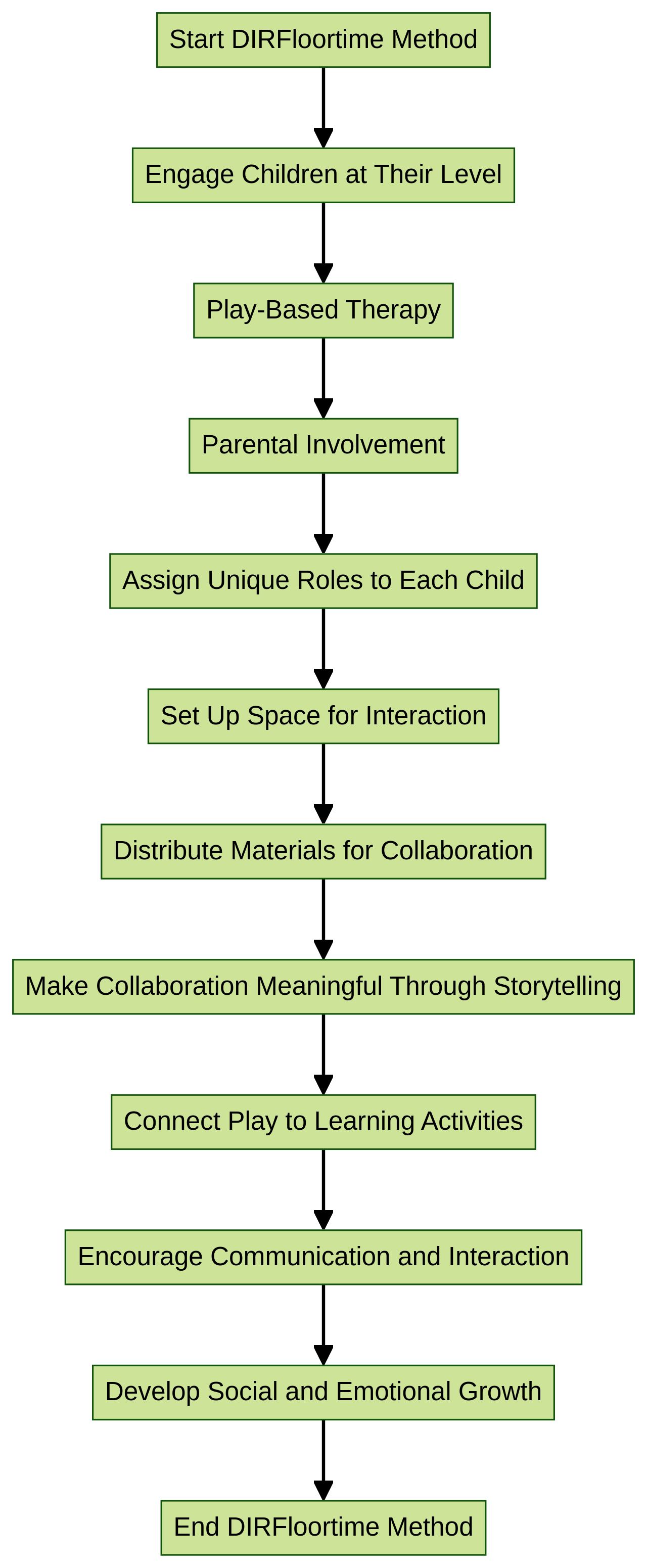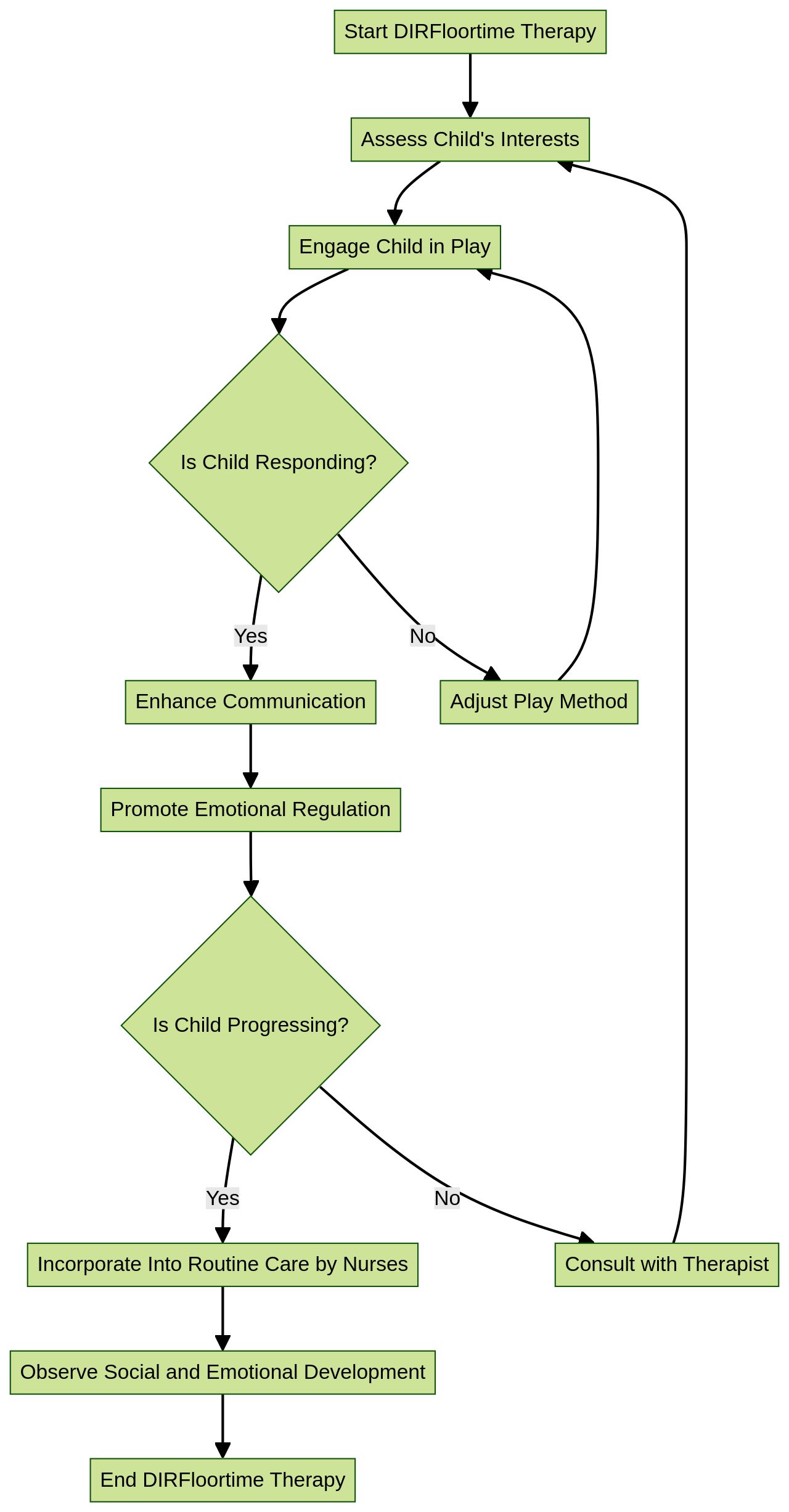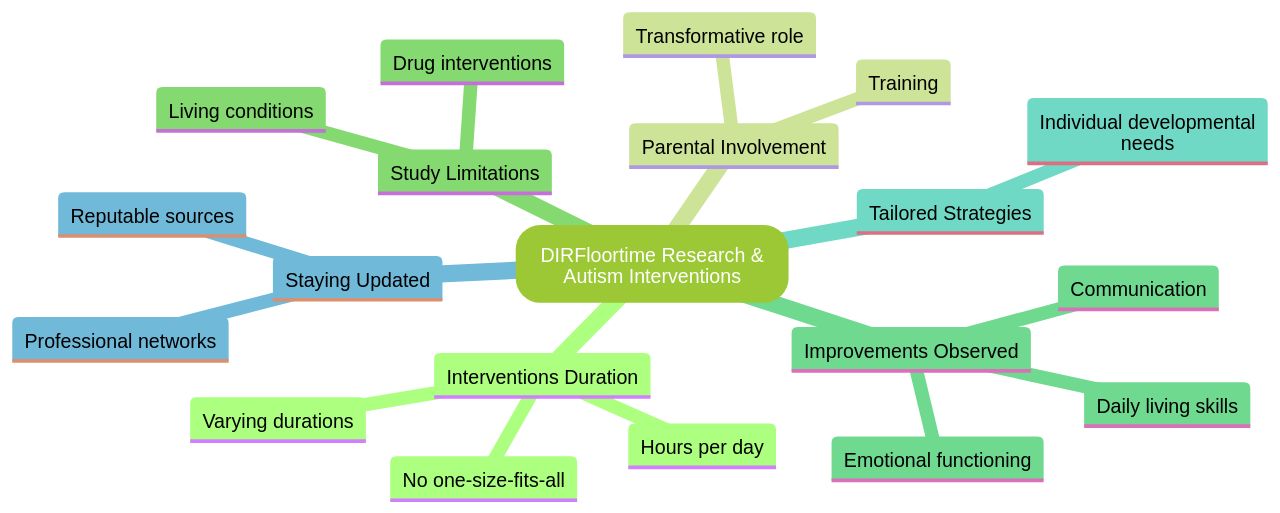Introduction
The DIR Floortime approach, developed by Dr. Stanley Greenspan and Dr. Serena Wieder, focuses on enhancing the social-emotional development of children with autism spectrum disorder (ASD) and similar developmental difficulties. This article explores the transformative impact of DIR Floortime, highlighting the importance of parental involvement in fostering communication, emotional functioning, and daily living skills in children.
Through a comprehensive review of research studies, the article underscores the significance of this child-led therapy and its potential to profoundly benefit the social and emotional development of children with ASD. The evidence presented here aims to empower Parent Advocates with valuable insights and resources to navigate the challenges of ASD and ensure the well-being of their children.
Understanding DIR Floortime
The DIR Floortime, a therapeutic approach by Dr. Stanley Greenspan and Dr. Serena Wieder, is centered on enhancing the social-emotional development of children with autism spectrum disorder (ASD) and similar developmental difficulties. Through this method, the critical role of parents in their children's growth is underscored.
Studies have shown that when parents actively participate in Floortime sessions, children demonstrate notable improvements in emotional functioning, communication, and daily living skills. A comprehensive review of 12 studies, involving 312 children aged 2 to 19 years, revealed that home-based Floortime, which is entirely child-led, can have a significant impact.
As parents become more involved, they often notice a stronger bond with their child, leading to better overall development outcomes. In trials comparing different interventions, parents' educational background and their understanding of their child's condition were influential in the therapy's success. Furthermore, research indicates that Floortime can be a cost-effective option that, if initiated early by healthcare professionals, can profoundly benefit social and emotional development in children with ASD.
What is DIRFloortime?
DIRFloortime is an engaging, relationship-based framework that seeks to foster social and emotional growth in children. This method, deeply rooted in fostering connections and emotional development, actively involves children in play that resonates with their interests, thereby enhancing their learning experience. By engaging with children at their level and embracing their lead, Dir Floortime aims to cultivate crucial life skills such as effective communication, problem-solving, and self-regulation, alongside nurturing their ability to connect with others emotionally.
Research has demonstrated that a child's developmental progress in Dir Floortime is significantly influenced by parental involvement. Studies encompassing a diverse group of 312 children from various countries have shown that parents' active participation and education about their child's condition can lead to marked improvements in the child's emotional functioning, communication, and daily living skills. Furthermore, the development of neural pathways in the child's brain is stimulated during the interactive play sessions that are central to DIRFloortime, underscoring the importance of this play-based therapy.
As highlighted by an independent evaluation from the National Foundation for Educational Research, interventions like these can yield substantial progress in a child's language and social skills, particularly when family involvement is prioritized. This research underscores the critical role parents play as educators in their child's development, reinforcing the notion that collaborative efforts between schools and families are key to maximizing children's potential. Additionally, evidence suggests that children who receive more intensive intervention sessions show greater advances, a testament to the value of consistent and focused engagement in developmental programs like dir floortime.

Evidence Base for the DIRFloortime Approach
Recent studies underscore the transformative impact of Dir Floortime, a therapeutic approach that focuses on social and emotional growth in children with Autism Spectrum Disorder (ASD). By engaging children in play that resonates with their interests and involves parental participation, DIRFloortime has shown promising results.
Parents who are deeply involved in the process often report enhanced communication and emotional regulation in their children. One particular study, the University of California, Los Angeles Program for the Education and Enrichment of Relational Skills (PEERS) for Preschoolers, revealed that children exhibited notable social skills and confidence boosts post-intervention, with parents feeling more positive and empowered.
A diverse range of studies, including 312 children across various countries, reinforces the efficacy of Dir Floortime in advancing various functional abilities in children with ASD. The research highlights that the more parents engage with their children during Dir Floortime, the more pronounced the improvements in emotional functioning, communication, and daily living skills. Nurses have also played a pivotal role by incorporating play therapy into routine care, enhancing the children's ability to forge emotional connections and communication. Overall, DIRFloortime stands out as an effective, child-led therapy that, when initiated early, can significantly foster social and emotional development, offering a beacon of hope for families navigating the challenges of ASD.

What to Measure?
Navigating the landscape of developmental interventions for children with autism, it's crucial to identify pivotal areas of growth beyond conventional metrics like IQ scores. Pivotal Response Training (PRT), with its emphasis on key areas such as engagement, communication, problem-solving, and emotional regulation, offers a comprehensive framework for assessing a child's developmental strides.
Research underscores the profound impact of parental involvement in PRT. According to studies, children whose parents actively participate in the intervention exhibit marked improvements in emotional functioning, communication, and daily living skills.
This collaborative approach is further supported by evidence from various international studies, which highlight the positive shifts in parent-child interactions as a result of consistent and engaged floortime sessions. The efficacy of PRT is not just anecdotal; statistical analysis from a range of studies, including randomized controlled trials and longitudinal research, reinforces its benefits.
These studies encompass a diverse array of participants, with no significant disparities in social skills development between intervention and control groups, suggesting that PRT's effectiveness transcends individual differences. Critical to the success of PRT is the tailor-made nature of the intervention, which acknowledges that each child's unique developmental stage and needs may require different strategies for skill enhancement. An integral part of optimizing PRT's outcomes is the continuous monitoring and adjustment of strategies based on a child's progress. This dynamic process is informed by the latest research and facilitated by the dedication of parents and educators who strive to support children's social and emotional growth. As such, PRT stands as a beacon of hope for improving the quality of life for children with autism and their families, fostering a more inclusive and understanding society.
Research
Understanding the nuances of Dir Floortime research can be critical for parent advocates seeking the best outcomes for children with autism. With studies showcasing a range of durations, from five weeks to a year, and varying hours per day, it's clear that there is no one-size-fits-all approach.
Most research emphasizes the transformative role of parental involvement and training. However, factors such as the effects of drug interventions alongside DIRFloortime or the influence of living conditions are often not within the scope of these studies.
Despite the lack of uniformity in research parameters, such as the number of sessions and socioeconomic diversity, the evidence points toward significant improvements in the emotional functioning, communication, and daily living skills of children engaged in DIRFloortime. Parents' active participation not only influences the efficacy of the intervention but also shapes their perception of their child's progress.
The research, varied in methodology and geography, underscores the need for tailored strategies to meet individual developmental needs. While the research landscape is evolving, with limited randomized controlled trials and studies predominantly post-2010, it highlights the importance of equipping parent advocates with comprehensive, context-sensitive insights. As the field grows, staying abreast of the latest findings through reputable sources and professional networks is indispensable. By doing so, parent advocates can champion interventions that are not only evidence-based but also adaptable to the unique challenges and triumphs of each child's developmental journey.

Conclusion
In conclusion, the DIR Floortime approach, developed by Dr. Stanley Greenspan and Dr. Serena Wieder, is a transformative therapy for children with autism spectrum disorder (ASD) and similar developmental difficulties. Parental involvement is crucial in fostering communication, emotional functioning, and daily living skills in children.
Research consistently shows that when parents actively participate in Floortime sessions and are educated about their child's condition, children experience notable improvements. Home-based Floortime, which is entirely child-led, strengthens the parent-child bond and enhances overall development outcomes.
Pivotal Response Training (PRT) offers a comprehensive framework for assessing a child's growth beyond conventional metrics like IQ scores. Parental involvement in PRT leads to marked improvements in emotional functioning, communication, and daily living skills.
The evidence underscores the cost-effectiveness of DIR Floortime and its potential to profoundly benefit social and emotional development when initiated early by healthcare professionals. Parent advocates should stay informed about the latest research to champion evidence-based interventions that adapt to each child's unique journey. The DIR Floortime approach empowers parents to navigate the challenges of ASD and ensure their child's well-being. In summary, DIR Floortime provides an empowering framework for parent advocates. By actively participating in therapy sessions, becoming educated about their child's condition, and staying informed about research developments, parents play a vital role in fostering their child's social-emotional growth and overall development.
Stay informed and champion evidence-based interventions for your child's unique journey!




